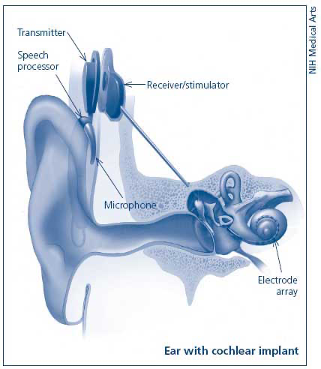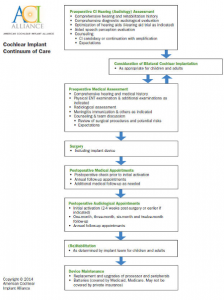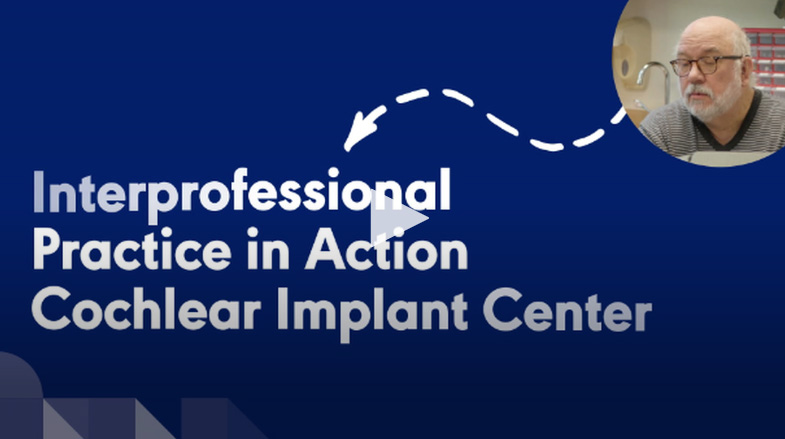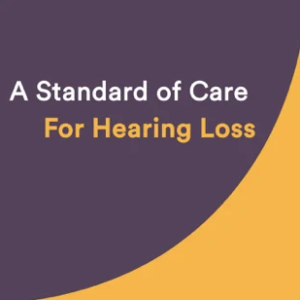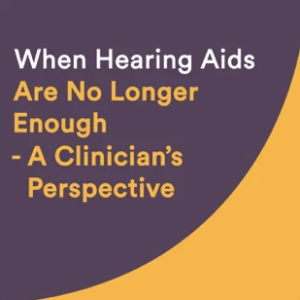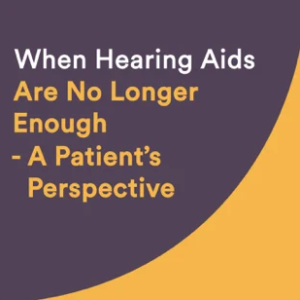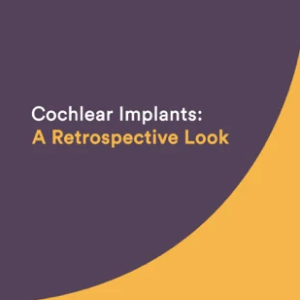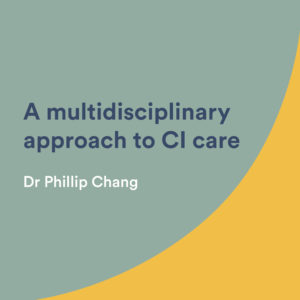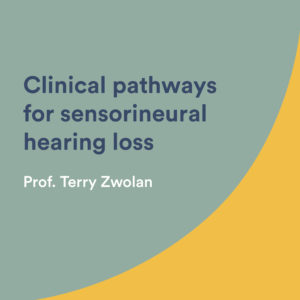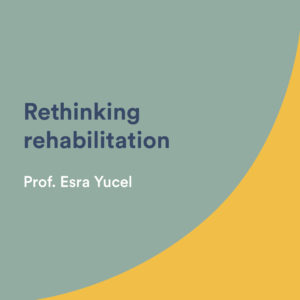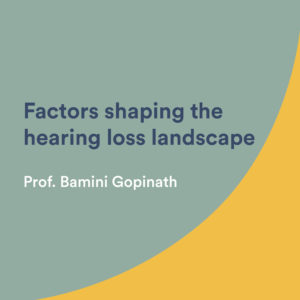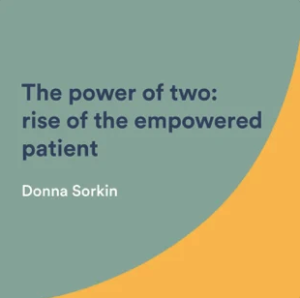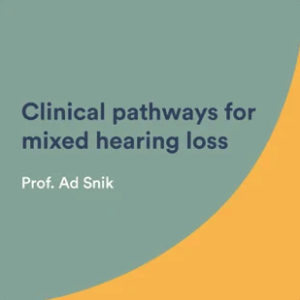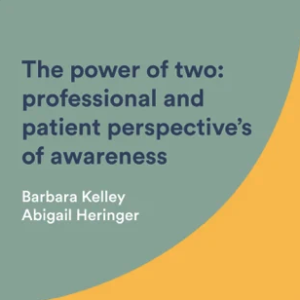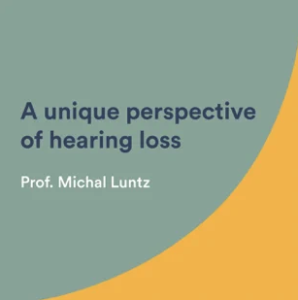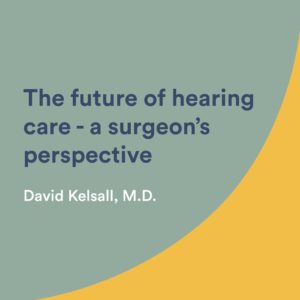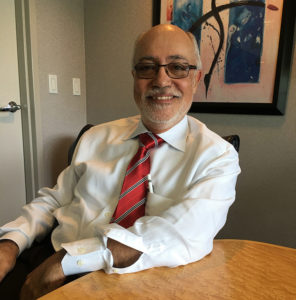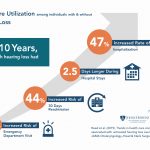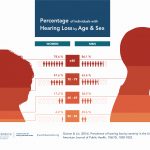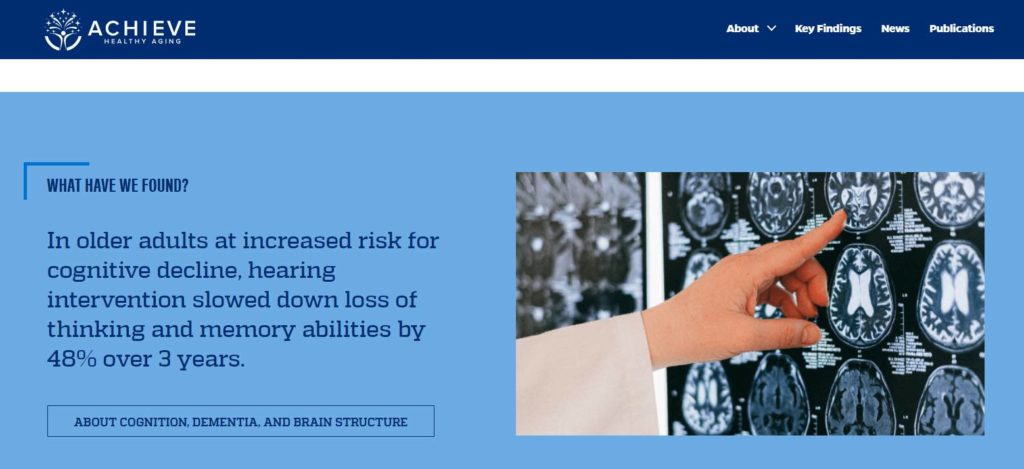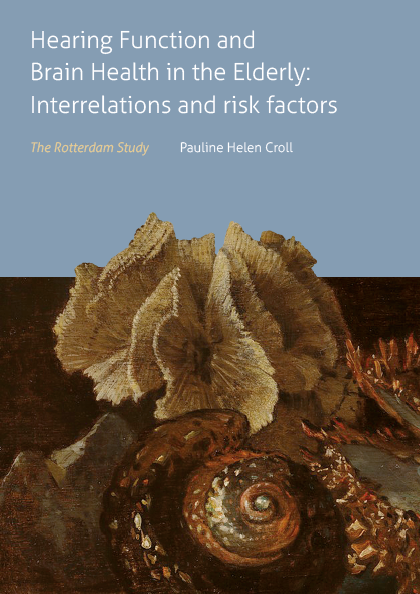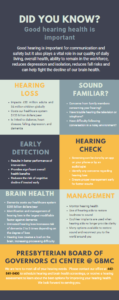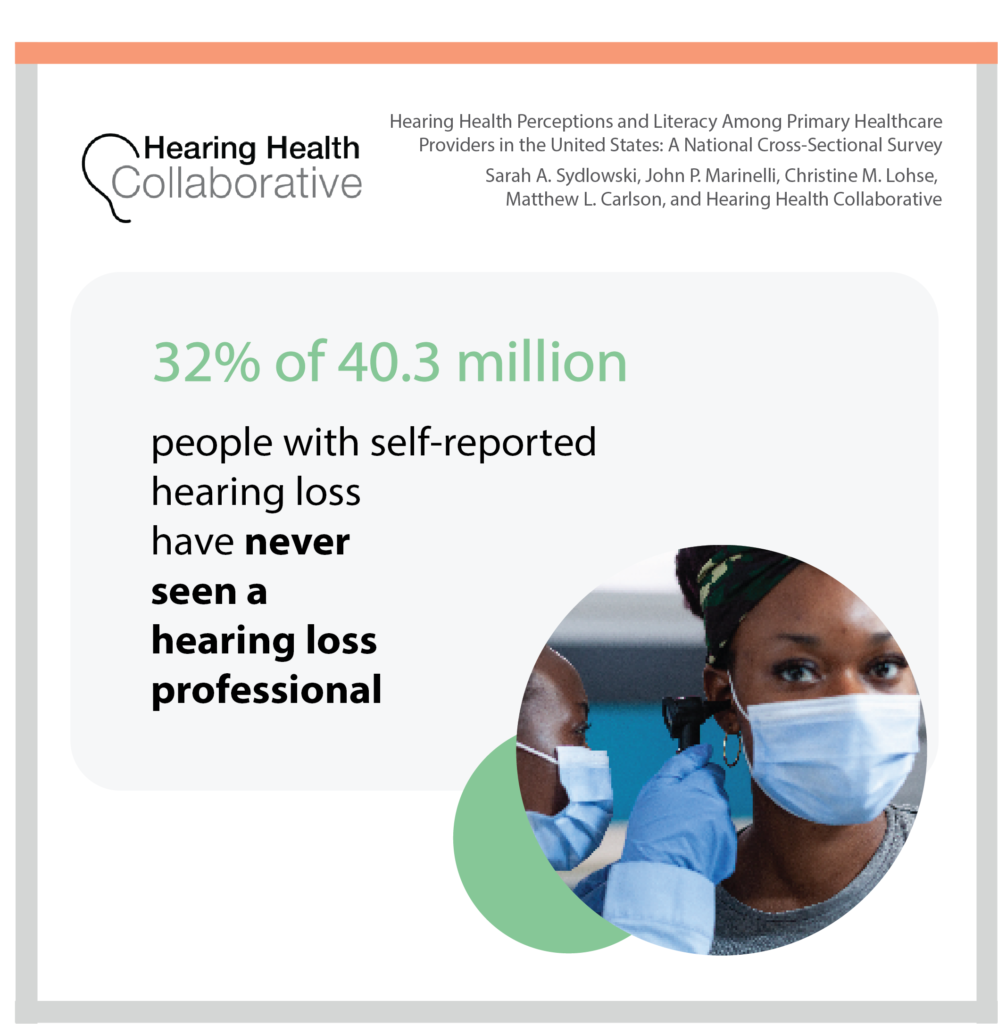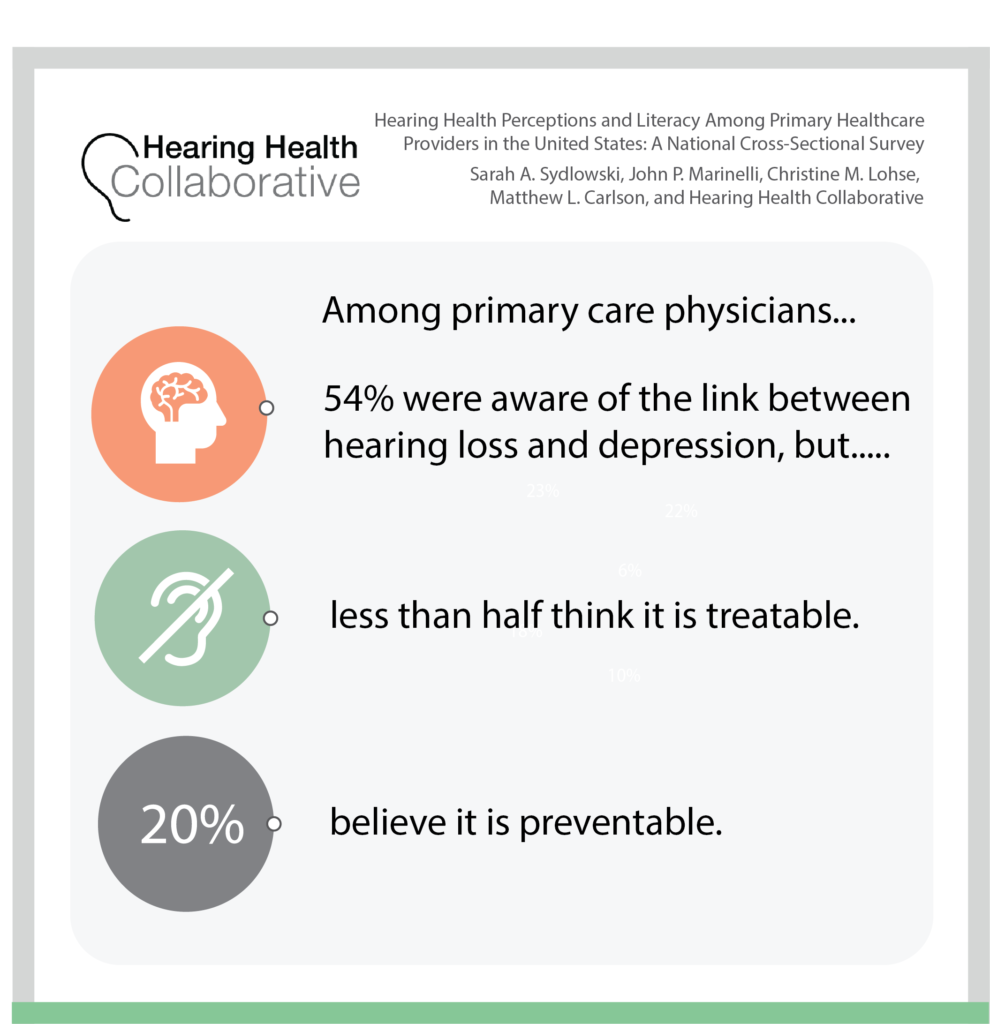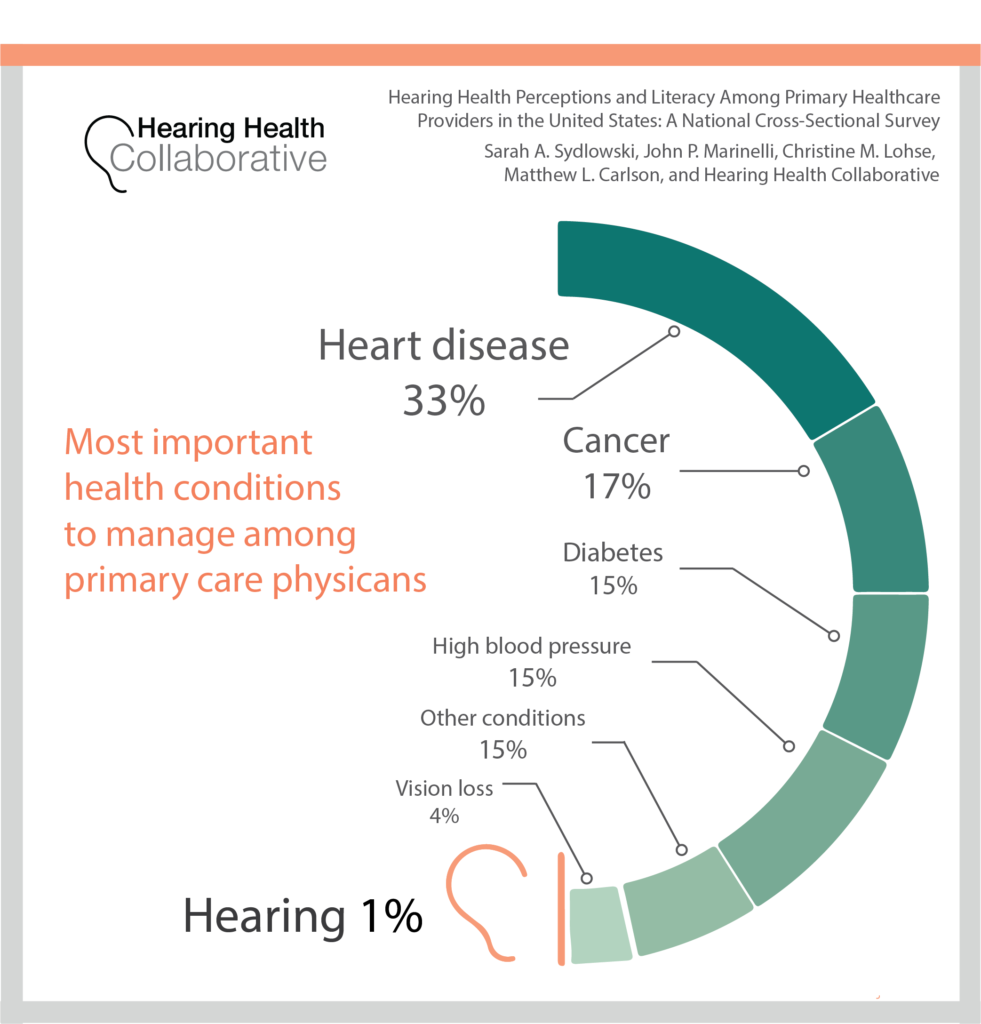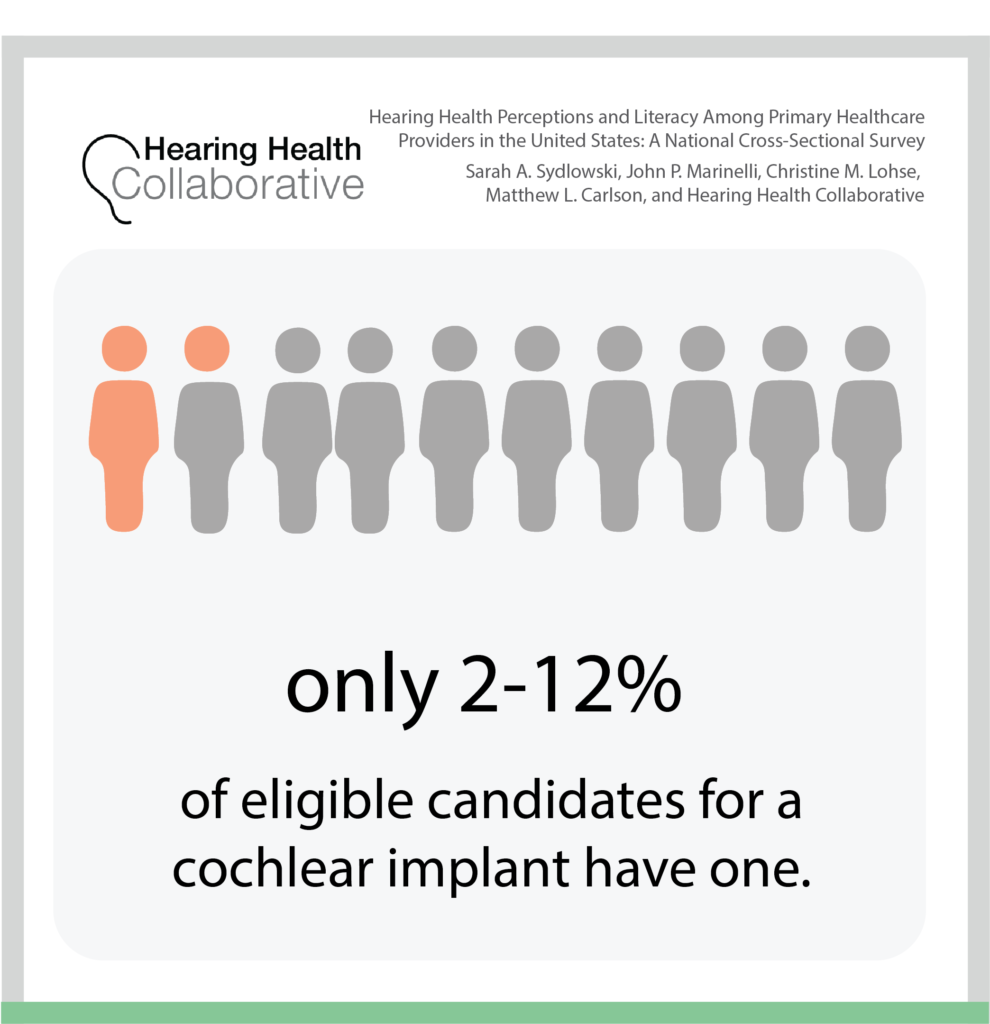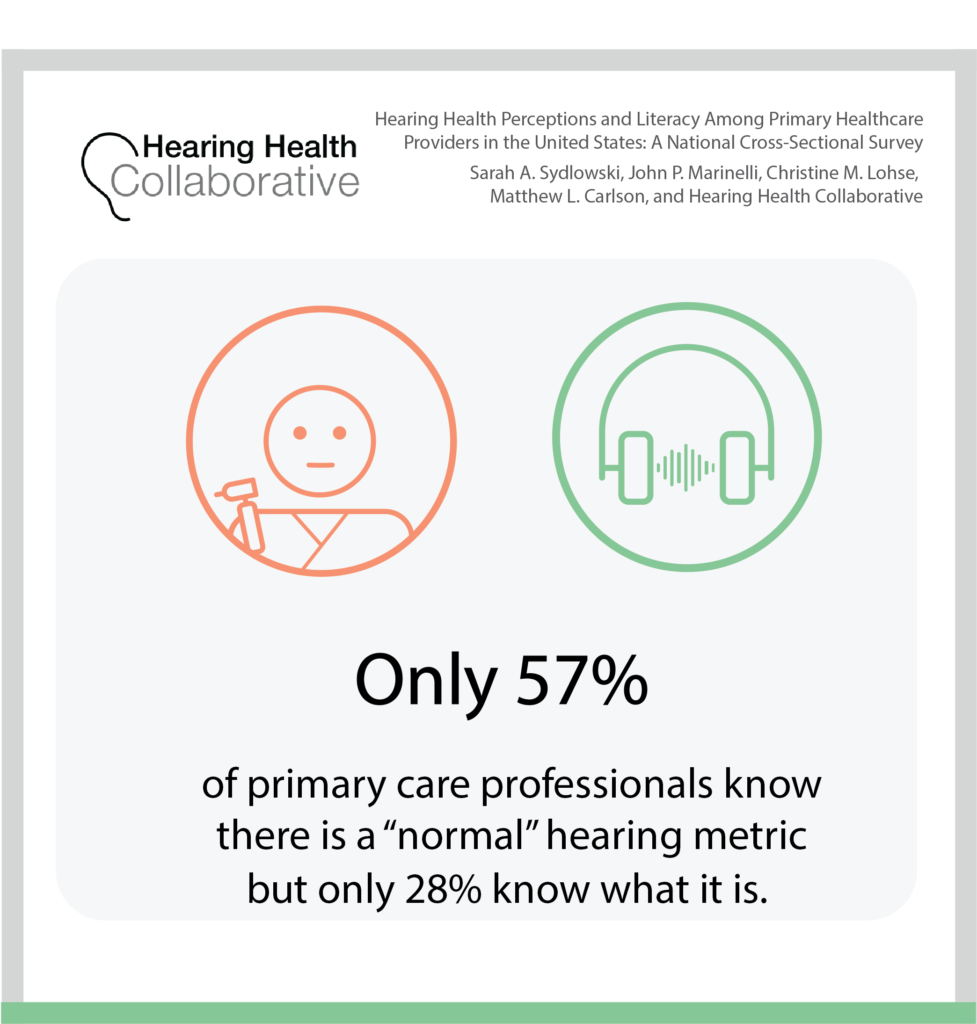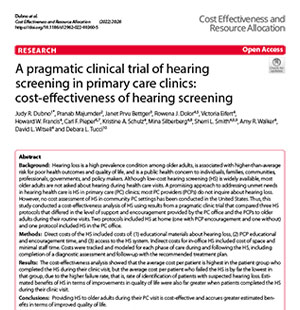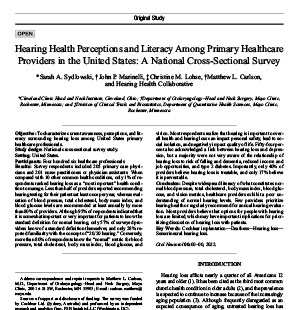Select a location below to view region-specific guidelines and resources.
WHAT IS A COCHLEAR IMPLANT?
COCHLEAR IMPLANTS Q&A - EVERYTHING YOU NEED TO KNOW
In this video, Nathan Connell, M.D., an ear, nose, and throat (ENT) physician with Mayo Clinic Health System, answers questions about cochlear implantation surgery, including how the device is different from a hearing aid, who is a good candidate for cochlear implantation surgery and what happens during the procedure.
Cochlear Implantation involves the surgical placement of an electrode array into the cochlea of the inner ear to provide direct electrical stimulation of the auditory nerve. Cochlear implants are different from hearing aids. While hearing aids amplify sounds to facilitate sound detection by impaired ear structures, cochlear implants bypass damaged portions of the ear and directly stimulate the auditory nerve. This type of stimulation improves clarity and speech understanding.
Advances in the technology, including combining hearing aids with CIs, have expanded candidacy to include individuals with usable residual hearing.
A cochlear implant consists of external and internal (surgically implanted) components.
The external components include:
- A microphone that picks up sounds from the environment;
- A speech processor (a computer) that analyzes and digitizes sound signals and sends them to a transmitter;
- A transmitter worn on the head that sends the signal to the surgically implanted internal receiver/stimulator.
The internal components include:
- A receiver/stimulator just under the skin which receives signals from the processor and converts them into electric impulses;
- An electrode array that receives the signal from the transmitter and stimulates the auditory nerve. The transmitted information is then sent to the brain, which “learns” to interpret the signal as meaningful information.
Hearing aids help the majority of individuals with hearing loss by amplifying sound. But even the most advanced hearing aids may not overcome the hearing difficulties associated with severe to profound hearing impairment. A cochlear implant bypasses the damaged areas of the cochlea and may provide improved hearing abilities for speech understanding and the perception of music and environmental sounds.
For some individuals who have useable residual hearing in one ear there is an opportunity to use a cochlear implant in one ear and a hearing aid in the other. The cochlear implant center teams are able to help patients to be appropriately fit with both devices.
A determination of candidacy is made by an audiologist and ear-nose-throat (ENT) surgeon with special training in cochlear implants. As of 2012, an adult with moderate to profound hearing loss may have up to 50% sentence discrimination (i.e. words in sentences) in the ear to be implanted — wearing hearing aids — and be an appropriate candidate.
In general, if someone wearing appropriately fit hearing aids cannot understand speech without seeing the speaker’s face, they should be evaluated for a cochlear implant.
For children, an assessment of any child with a severe to profound hearing loss should be made as early as possible as outcomes with a cochlear implant are significantly better in children who receive an implant at the earliest possible age.
Cochlear implant candidacy guidelines have changed to include children and adults with more residual hearing as well as other anatomic, health, and learning issues that would have been considered “absolute” or “relative” contraindications in the past.
Utilization of other technologies, in combination with the cochlear implant device, have provided further expansions in outcomes bringing recipients closer to “normal” hearing.
With all of these changes has come a new recognition of the quality of life changes and cost utility made possible when the right device is matched to appropriate patients.
Older adults benefit greatly from cochlear implants. However, widespread misunderstanding exists regarding when older adults should be referred for a cochlear implant and there is a tendency by our healthcare system to overlook hearing as a major health concern. Studies have shown that there is no significant difference in outcomes for older adults.
The only way to know is to be evaluated at a center specializing in cochlear implants. Candidacy criteria today are much broader than they were even 5 years ago because the technology has improved. New devices and surgical techniques allow for preservation of residual hearing. If you struggle with certain speakers, in noise, and on the telephone—even wearing hearing aids—you may be a CI candidate and be able to improve your hearing outcomes with a cochlear implant. A CI evaluation is typically covered by health insurance.
Research confirms that many people with usable residual hearing derive benefit from bimodal hearing (a hearing aid in one ear and a cochlear implant in the other). Having sound on both sides may improve sound localization as well as speech understanding in quiet and in noise. Assistive devices can be programmed to both ears. Bimodal users often report that music sounds better with the combined use of a hearing aid and a cochlear implant.
Cochlear implantation involves a team of people with a range of training and skills. Teams include specially trained ear, nose and throat (ENT) physicians, audiologists, and speech language pathologists. Other members of the team might include a social worker, a teacher of children with hearing loss, and a psychiatrist or psychologist.
As a specialized procedure, cochlear implant (CI) surgery is not performed in all ENT clinics. Cochlear implants are a specialized intervention undertaken by individuals who have chosen to specialize in this device. Unlike other interventions, a cochlear implant is a lifelong process that requires care over a person’s lifetime. The best outcome is dependent upon more than just surgery. Mapping or programming of the external sound processor by a CI audiologist is required every 3 to 6 months during the first year. Typically, after the first few years, annual audiology visits are recommended. Additionally, auditory (re)habilitation services provided by the CI team or a recommended professional outside of the clinic will help children and adults reach their full potential with the CI device.
Yes—with the appropriate accessories! The manufacturers have all developed solutions that recipients can use to waterproof their equipment. These accessories (and/or special waterproof processors) allow users to swim with sound in a wide variety of conditions including fresh, salt, and chlorine water. Many families enjoy bath time with the waterproof options to keep language learning going. There are ways to ensure that the processor and equipment stays in place while swimming, such as headbands and clips.
Specific details on waterproofing solutions can be found on the websites of each CI manufacturer. Your cochlear implant audiologist will also be able to discuss these options. Before pursuing any deep-water activities—with or without the sound processor on—be sure to speak with your surgeon.
Kindly reproduced from the National Institute on Deafness and other Communication Disorders (NICD). Visit the NIDCD website at https://www.nidcd.nih.gov to read, print, or download publications.
Kindly reproduced by the American Cochlear Implant Alliance (ACIA) www.acialliance.org/page/cochlearimplantfaq
Interprofessional Practice (IPP) in Action: Cochlear Implant Center - ASHA Stream
Learn how the Cochlear Implant Center at the Greater Baltimore Medical Center (GBMC) uses interprofessional practice to help improve patient care and outcomes, increase efficiencies of care, and enhance patient and team satisfaction.
GUIDING THE CONVERSATION ON COCHLEAR IMPLANT SURGERY: A SURGEON'S PERSPECTIVE
Clinical Professor Catherine Birman OAM, Next Sense, Sydney, Australia
Time to Give Up on Hearing Aids? Cochlear Implant Referral Criteria
Dr. Cliff AuD
HEAR FROM CI USERS
Courtesy of the Pindrop Foundation NZ, adults who have lost their hearing and need cochlear implants to give them access to sound share what it is like living with a disabling hearing loss.
Pindrop Foundation presents ‘A year in the life’ of Scotty McLachlan
‘A year in the life’ follows Scotty McLachlan’s cochlear implant journey and celebrates the power of cochlear implants to transform lives.
The PinDrop Organisation New Zealand provide guidance on cochlear implants.

Cochlear Implant Basics consists of podcast episodes (with transcripts) with candidates and recipients of cochlear implants. It is a guide designed for those who are just starting their investigation into the possibility of restored hearing.
WATCH PATIENT STORIES
Georgia finds hope and hears daughter with hybrid hearing
80 year old Malcom rediscovers favourite activities after implantation
After 50 years of hearing loss Nancy finally appreciates the great outdoors again
Diane from Rotherham UK shares her experience with being given back her sounds
The Listening Project explores the profound impact that hearing technology has on the lives and identities of young adults with hearing loss as they navigate their way through life. Sometimes humorous and always tender, this 30-minute documentary takes us on a journey beginning in childhood, through the growing pains of adolescence, and eventually into their professional lives.
Together, Dr. Jane Madell, PhD, FAAA, CCC-A/SLP, LSLS Cert AVT, and Oscar-nominated, Emmy and Peabody Award-winning filmmaker Irene Taylor Brodsky bring us this touching coming-of-age story. We hear several adults share their experiences navigating life with hearing loss while listening and talking.
The Listening Project shows the joys and challenges of what it’s like to grow up with hearing loss. These young adults are examples of how with perseverance, access to sound, and the right technology, the sky’s the limit for today’s little ones growing up deaf or hard of hearing.
Teresa Caraway, PhD, CCC-SLP, LSLS Cert. AVT, CEO Hearing First
Margaret reconnected with her grandchildren thanks to the right hearing solution for her
Dave’s journey, from damaging his hearing in a firearms incident to getting his hearing back
Nurse Wants to Hear. Can You Hear Her?
Kids Wants to Hear. Can You Hear Them?
Young People Want to Hear. Can You Hear Them?
PODCASTS
ADULT COCHLEAR IMPLANTATION
Dr Jason Barnes discusses the intervention with Dr Matthew Carlson.
Footage courtesy of The Headmirror Initiative


HEARING HEALTH TODAY
Season 1: Hearing Health Today is an educational and thought-provoking series for hearing health professionals that explores the key challenges, trends and opportunities in the delivery of hearing care today, and in the future.
In this episode, we’ll hear from Professor Helen Cullington, who’ll talk about how hearing health professionals can stay connected to their patients. We will explore what changes in practice have occurred with the COVID-19 pandemic. We’ll also hear about what tools exist in the hearing ‘space’ for professionals and discuss tools and resources to help patients reduce their fear of isolation.
Today, we’ll continue our theme on telemedicine and hear from another expert, Dr. Allison Biever, researcher and audiologist from Rocky Mountain Ear Centre in Denver, Colorado, who’ll give her perspective on how clinics can use telemedicine in practice and also provide insight into what’s in store for the future of hearing health care, both challenges and opportunities.
In this episode, we’ll speak with Associate Professor Holly Teagle from the University of Auckland in New Zealand and explore how we can address the growing hearing loss epidemic. We’ll also gain a broader perspective on why treatment guidelines and a standard of care for hearing loss are so crucial when we hear from two additional experts in the field, Dr Leo De Raeve, and Associate Professor Robert Briggs.
In this episode, we’re going to dive deep into progressive hearing loss and explore what happens, or doesn’t happen, when hearing aids are no longer enough. We’ll be speaking with Professor Ulrich Hoppe, Professor of Audiology at University Hospital and Head of the Cochlear Implant Center, CICERO, in Erlangen, Germany.
In today’s episode, we continue exploring the theme “When Hearing Aids Are No Longer Enough” from the patient’s perspective. We’ll hear from Malcolm, a gentleman from the United Kingdom, who struggled for many years with hearing aids before finally receiving a referral for a CI.
In this episode, ‘A Connected Hearing Care Ecosystem’, hear Dr Eliana Cristofari, a surgeon and expert in rehabilitation from Varese, Italy, discuss how she and her team have built an innovative and multidisciplinary approach to ‘care-anywhere’.
In this episode, ‘A New Lease of Life’, Tony describes the impact hearing loss had on his life as an actor living in the UK. Also in this episode, we hear a professional perspective from Dr Isabelle Mosnier, ENT and expert in aging and cognition, from Paris, France.
In the final episode of our inaugural season of Hearing Health Today, we’ll take a walk down memory lane with the pioneer of the multi-channel cochlear implant, Professor Graeme Clark, who’ll discuss how it all began, the advancements in technology over the years, and the impacts it has had on clinical care.
Season 2: Hearing Health Today season 2 is a nine-part series with a new episode released every two weeks. Topics include factors shaping the hearing loss landscape, treatment pathways for sensorineural and mixed hearing loss, and the power of patient and professional awareness and engagement. More than 10 guest panellists will feature across the series.
Have you ever wondered about hearing health care across large geographies?
Listen to Dr Phillip Chang, ENT Surgeon from Sydney, Australia, discuss patient-centred care and the multidisciplinary approach his team uses to serve country and regional patients.
In this episode of Hearing Health Today, Professor Terry Zwolan shares her 30+ years’ experience of treating patients with sensorineural hearing loss and discusses the importance of the International Consensus Paper as well as her 60/60 referral guidelines.
In this episode of Hearing Health Today, Professor Esra Yucel shares her extensive rehabilitation experience and discusses the importance of real-world listening and communication.
In this episode of Hearing Health Today, Australian epidemiologist, Professor Bamini Gopinath, discusses how lifestyle factors impact on hearing loss and other health and social outcomes.
How can empowerment help patients to move along their hearing loss journey?
Listen to the Executive Director of the ACI Alliance, Donna Sorkin, discuss ‘The power of two: rise of the empowered patient’ on the episode of Hearing Health Today.
In this episode of Hearing Health Today, Professor Ad Snik, from Nijmegen, the Netherlands shares his career highlights and discusses the current clinical pathways for mixed hearing loss including what really influences hearing outcomes and sound quality.
In this episode of Hearing Health Today, Professor Kelvin Kong, Australia’s first Indigenous surgeon, shares his experiences treating chronic otitis media. He also discusses the disparate access to health care and the impact on First Nations peoples in Australia.
In this episode of Hearing Health Today, Barbara Kelley, the Executive Director of the Hearing Loss Association of America and Abigail Heringer, cochlear implant recipient and contestant on “The Bachelor” and “Bachelor in Paradise”, discuss awareness and explore different awareness channels for both professionals and patients. We’ll also learn about the CIICA and how important the combination of professionals and patients’ voices are to improving awareness of hearing loss.
In this episode of Hearing Health Today, Professor Michal Luntz shares her unique perspective on hearing loss as a physician, surgeon, scientist, teacher and cochlear implant recipient.
In this episode of Hearing Health Today, David Kelsall, M.D. shares how his experience on medical missions abroad, conducting clinical research and performing surgeries throughout the years has shaped his view on the current successes and opportunities of hearing health care, and what the future may hold.
CONVERSATIONS WITH DR BAUCHNER
USPSTF Recommendation: Screening for Hearing Loss in Older Adults
Interview with Chien-Wen W. Tseng, MD, USPSTF member and coauthor of USPSTF Recommendation: Screening for Hearing Loss in Older Adults

COCHLEAR IMPLANT BASICS
Cochlear Implant Basics consists of podcast episodes (with transcripts) with candidates and recipients of cochlear implants. The below episodes highlight interviews with surgeons and other professionals who serve the hard of hearing and deaf community.
Dr. Bruce Gantz
Dr. Gantz took time from his busy schedule to talk about the history of his involvement with cochlear implants, his specialty and the exciting development of robotic surgery and his vision of the future.
Dr. Jack Wazen
Dr. Wazen sat down to talk about his study into pre and post-operative vestibular issues of cochlear implant recipients, and a wide range of issues relating to cochlear implants; success rates, MRI compatibility, age issues and implant success rates and most of all issues he has faced in his decades of experience as well as his vision and hopes for the future of cochlear implants.
Dr. Loren Bartels
Dr. Bartels has seen and performed surgery and the restoration of hearing through cochlear implants from the start. He talks about his background and the advancement of cochlear implants as well as his own criteria for determining a candidacy. His views on pediatric cochlear implant surgery are invaluable to parents seeking answers.
Dr. Vicky Moore
Dr. Vicky Moore is an audiologist and co-owner of The Hearing Spa in Sarasota Florida. Along with being an independent hearing aid dealer, she does evaluations for cochlear implants candidates and is an expert programmer for all three major makes of cochlear implants.
INTERVIEW WITH CRAIG A. BUCHMAN
Listen to an interview with Craig A. Buchman, author of ‘Unilateral Cochlear Implants for Severe, Profound, or Moderate Sloping to Profound Bilateral Sensorineural Hearing Loss: A Systematic Review and Consensus Statements’.
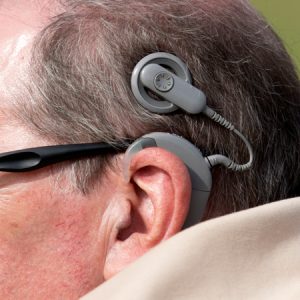
HEARING TRACKER PODCAST: DEMENTIA & HEARING LOSS
Interview with Nicholas Reed, AuD, assistant professor in the Departments of Epidemiology at the Johns Hopkins University Bloomberg School of Public Health and Otolaryngology-Head and Neck Surgery, discussing his recent work with the ACHIEVE Trial, which is exploring the causal effect that may exist between hearing loss and dementia.
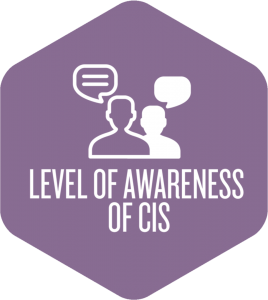
LEVEL OF AWARENESS OF CIS
WORLD REPORT ON HEARING
On 31 March 2021, the World Health Organization released the World Report on Hearing (WRH).
The WRH was developed in response to the World Health Assembly resolution (WHA70.13).
The WRH was developed in collaboration with experts and stakeholders in the field of ear and hearing care who informed the report’s strategic direction and ensured that it reflects a range of cultural contexts and approaches to hearing care.
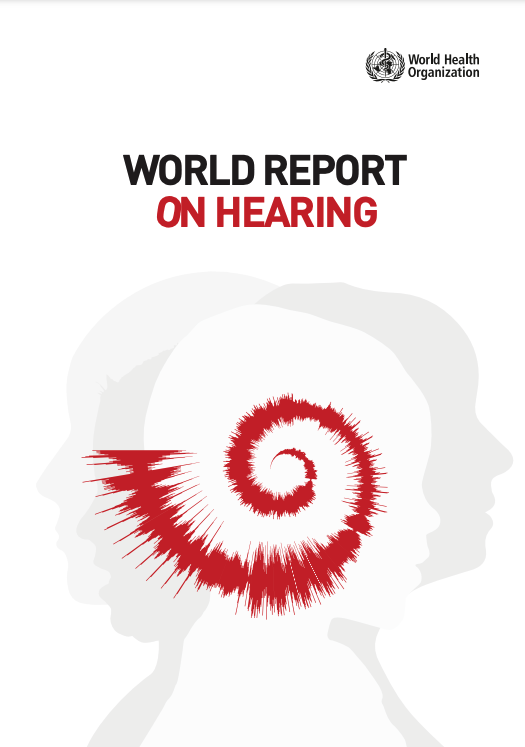
THINK GP INTERVIEW
Australian Hearing’s Emma Scanlan did a thorough interview on hearing loss for Think GP last year.
Lack of referral pathways to Cochlear Implantation (CI) leads to an unnecessary burden on the individual with hearing loss, with a poorer quality of life.
Videos from this webinar discuss the barriers and facilitators to overcoming awareness of CI featuring a diverse multi-disciplinary panel of experts. The panel also present real world examples from their own experience and discusses potential solutions to increasing equity and access for adults.
Barbara Kelley (US) opens the discussion on awareness of CI for adults from the patient’s perspective
Matthew L. Carlson (US) presents on the research and raising the level of awareness of CIs
Regina Presley (US) presents on how the International Consensus Paper applies in clinics day-to-day
Panel discussion chaired by Brian Kaplan
COCHLEAR IMPLANT FUTURES FORUM: AWARENESS OF COCHLEAR IMPLANTATION - AUDIOLOGY ONLINE INTERVIEW
Globally, it is estimated that only one in twenty who could benefit from cochlear implants (CI) have one. Most other health treatments have internationally accepted standards of care that inform patients and health care practitioners when specialist referrals and treatment options should be considered.
A panel discussion with leading experts in the field of Audiology explores the lack of awareness of cochlear implants for adults, and the various barriers and facilitators to overcome this. Chaired by Brian Kaplan, M.D., F.A.C.S. Chairman, Department of Otolaryngology at Greater Baltimore Medical Center, U.S.

INTERNATIONAL FEDERATION OF ORL SOCIETIES MATERIAL LIBRARY

HEAR WELL. STAY VITAL ASSET LIBRARY

HEARING 101: WHAT HAPPENS TO HEARING AS WE GET OLDER
Johns Hopkins Cochlear Centre for Hearing and Public Health
PINDROP FOUNDATION NZ
Pindrop Foundation campaign to end silence. This video features cochlear implant recipient Richard Milne as he talks about his journey.
The campaign to end silence follows the World Health Organization’s mission to make early detection and treatment of hearing loss a priority.
Hearing loss is lonely but it doesn’t have to be that way.
We need your help.
Please take a minute to tell your MP that you want all adults who need a cochlear implant to get one.
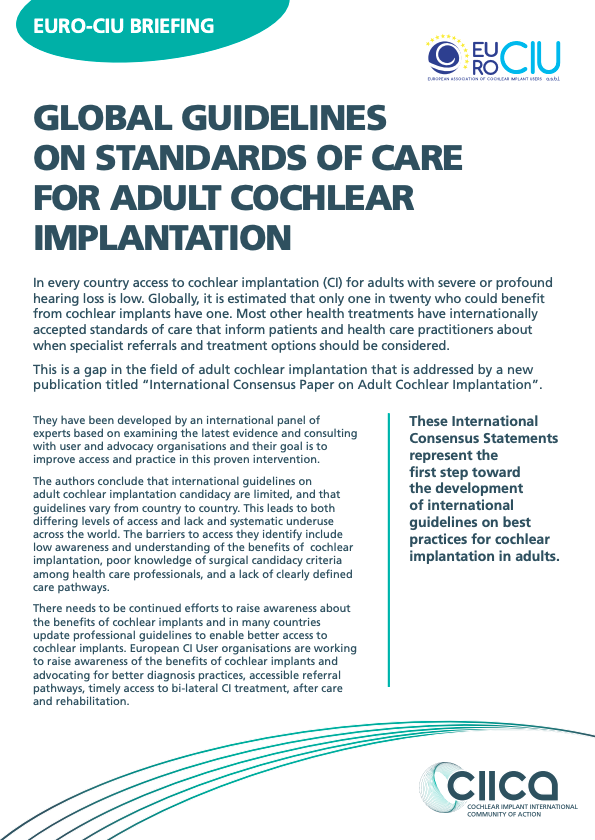
GLOBAL GUIDELINES ON STANDARDS OF CARE FOR ADULT COCHLEAR IMPLANTATION

BEST PRACTICE CLINICAL PATHWAY FOR DIAGNOSIS
CI CANDIDACY FOR ADULTS
Gain insight into cochlear implant candidacy for adults from Meredith Holcomb, University of Miami audiologist.
Screening for hearing loss in adults is important for the identification of potential candidates for cochlear implantation (CI). This webinar looks at how clear and appropriate criteria for diagnosis of those who may be a candidate will help create a clear pathway to implantation, and improve understanding of the benefits and appropriateness of CIs by health professionals and the general public.
Leo De Raeve presents on ‘The international consensus paper process from a consumer and advocacy perspective’
Laura Turton presents on ‘Guidelines for best practice in the audiological management of adults with severe and profound hearing loss’
Ulrich Hoppe presents on ‘Cochlear Implant Candidacy Screening’
Panel discussion chaired by Michal Luntz

CLINICAL EFFECTIVENESS OF COCHLEAR IMPLANTS
GUIDING THE CONVERSATION ON COCHLEAR IMPLANT SURGERY: A SURGEON'S PERSPECTIVE
Clinical Professor Catherine Birman OAM, Next Sense, Sydney, Australia
MY COCHLEAR IMPLANT JOURNEY
A year in the life of Charlotte, courtesy of Pindrop Foundation NZ, follows teacher, entrepreneur and mum Charlotte De Jong on her cochlear implant journey from pre-surgery, surgery, rehab and beyond.
COCHLEAR IMPLANT SURGERY
Gain insight into cochlear implant counselling tips and best practice for adults from Oliver Adunka, Director of Otology, Neurotology and Cranial Base Surgery, Department of Otolaryngology-Head and Neck Surgery, Ohio State University.
Cochlear implants (CIs) are effective in improving quality of life due to improved hearing, and the wider impacts of better communication and connection with the world. In this webinar, a diverse panel of experts discuss their views on CIs becoming the accepted standard of care for severe and profound deafness in adults, and present real world examples from their own perspective.
Tatsuya Yamasoba presents on ‘Situation of CI in Japan and the experience at The University of Tokyo’
Milind V. Kirtane presents on ‘Adult Cochlear Implant program and challenges faced’
Cathy Birman presents on ‘Adult Standard of Care for cochlear implants: a whole of life hearing implant program’
Holly Teagle presents on ‘Current state and cochlear implant programs in New Zealand’
Byung Yoon Choi presents on ‘Research results relating to statements from the International Consensus Paper’
Panel discussion chaired by Nic Russel
Clinical Professor Cathy Birman Medical Director of Next Sense Sydney Australia presents on Adult Outcomes

COST IMPLICATIONS OF CIS
This webinar takes an in-depth look at the cost implications of cochlear implants (CI). Ensuring that people with hearing loss who could benefit from a CI receive one is not only beneficial for the individual’s wellbeing but improves their chances of employment. It is a cost effective intervention for health systems and has the potential to save money on other health related costs. Featuring presentations from a diverse multi-disciplinary panel of experts, the panel present real world examples from their own perspective and experience as well as discussing the recommendations from the International Consensus Paper.
Henry Cutler presents on ‘The Cost Effectiveness of Cochlear Implants in Swedish Adults’
Brian Lamb presents on ‘Return on Investment for Cochlear Implants’
Megan Quilter presents on ‘Cost Benefit Analysis for Bimodal Fittings’
Helen Cullington and Ann-Marie Dickinson presents on ‘An Audit of Cochlear Implant Referral in the UK’
Panel discussion chaired by Pádraig Kitterick
HEARING LOSS & OTHER COMORBIDITIES
DEPRESSION, COGNITION & DEMENTIA
THE LINK BETWEEN COCHLEAR IMPLANTS AND DEMENTIA
View the news report on how cochlear implants can fight off dementia.
HEARING FUNCTION AND BRAIN HEALTH IN THE ELDERLY: INTERRELATIONS AND RISK FACTORS: THE ROTTERDAM STUDY
In recent years hearing loss has been identified as a promising modifiable risk factor for hearing loss. In this thesis I explored in participants without dementia potential risk factors for hearing function and brain health.
Moreover, I was interested in the direct relation between hearing loss and brain health in the elderly. Croll, P.H. (2020, May 26). Hearing Function and Brain Health in the Elderly: Interrelations and risk factors: The Rotterdam Study. Erasmus University Rotterdam.
Retrieved from http://hdl.handle.net/1765/125101
STANDARD OF CARE: THE RELATIONSHIP BETWEEN HEARING LOSS AND DEPRESSION, COGNITION AND DEMENTIA IN ADULTS
Associate Professor Piers Dawes Department of Linguistics, Macquarie University, presents on the relationship between hearing loss and depression, cognition and dementia in adults.
Addressing hearing loss is associated with improvements in overall wellbeing including mental health by enabling people to communicate more easily with others. This can reduce the social isolation and quality of life problems associated with hearing loss. Addressing untreated hearing loss appears to be associated with improved cognition and a reduced risk of dementia. Further research is needed, and being carried out on the impact of cochlear implants in addressing cognitive impairment and mitigating the risk of dementia. This webinar features presentations from a diverse multi-disciplinary panel of experts. The panel present real world examples from their own perspective and experience as well as discussing the recommendations from the Consensus Paper in relation to hearing loss and depression, cognition and dementia.
Isabelle Mosnier presents on ‘Severe and Profound Hearing Loss and Cognition: Is There a Cognitive Benefit of Cochlear Implantation?’
Dakota Bysouth-Young presents on ‘Hearing Implants Australia: Quality of Life Measures, Findings, and Initiatives’
Craig Buchman presents on ‘International Consensus Paper Overview and Statements Relating to Depression, Cognition and Dementia’
Robert Mandara presents on ‘Cochlear Implant Recipient: Personal Experience and Challenges Associated with Hearing Loss’
Frank Lin presents on ‘Hearing Loss & Dementia: From Epidemiological Insights to the ACHIEVE Randomized Trial’
Panel discussion chaired by Gerard O’Donoghue
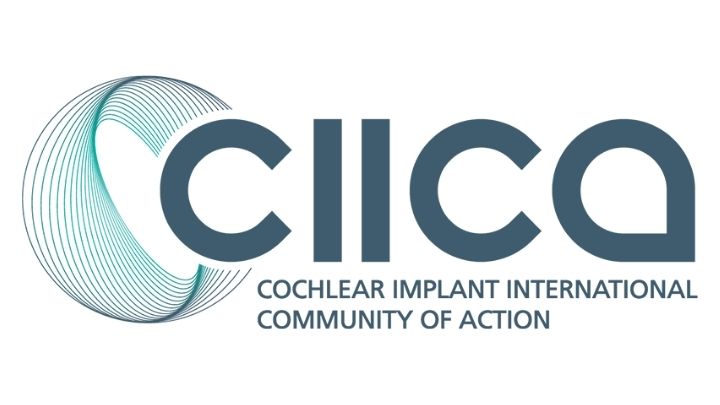
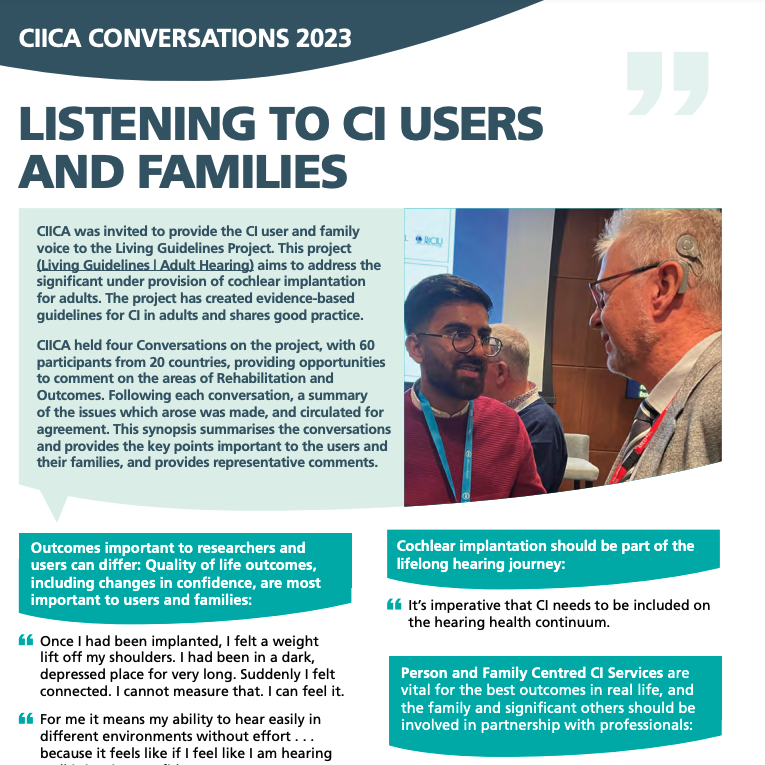
GOOD HEARING HEALTH FACT SHEET
Presbyterian Board of Governors CI Centre @ GBMC
Good Hearing is important for communication and safety but it also plays a vital role in our quality of daily living, overall health, ability to remain in the workforce, and can help fight the decline of our brain health.
Click the image for more.
THE RELATIONSHIP BETWEEN HEARING LOSS & DIABETES
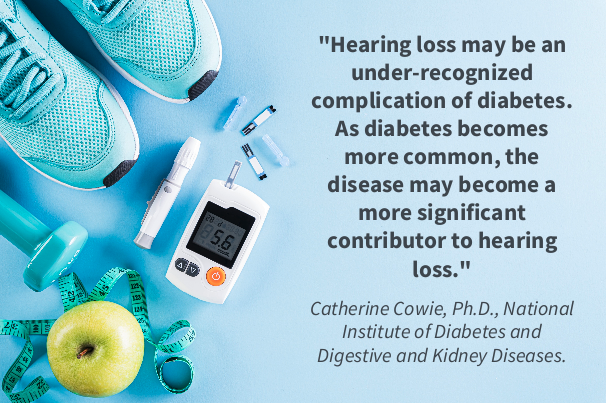

THE GLOBAL CI COLLABORATIVE PRESENTS: CI FUTURES FORUM WEBINAR SERIES
SEASON 2 - 2021
Though cochlear implants (CI’s) are an effective medical treatment for many adults living with severe to profound sensorineural hearing loss, conservative estimates suggest that 1 in 20 adults worldwide who could benefit from a cochlear implant have one.
The world’s first international consensus on cochlear implant treatment for adults was published in JAMA Otolaryngology. The paper was authored by 31 hearing experts assisted by cochlear implant user and professional advocacy organisations. The publication is a major step forward in clarifying when CI’s are a treatment option for adults, and a timely call to policymakers, insurance funding bodies as well as health professionals to better understand the importance of providing access to CI treatment for those who could benefit.
In this second series of webinars, hear from a diverse multi-disciplinary panel of experts from around the world, discussing the findings and recommendations from the consensus paper, as well as the real world barriers and facilitators to access and equity for adult CI.
In every country access to cochlear implantation (CI) for adults with severe or profound hearing loss is low. Globally, it is estimated that only one in twenty who could benefit from cochlear implants have one. Most other health treatments have internationally accepted standards of care that inform patients and health care practitioners about when specialist referrals and treatment options should be considered.
Featuring presentations from the authors of the International Consensus Paper on Adult Cochlear Implantation (CI), this webinar delves into the findings and recommendations from the paper with discussion around the significance of the publication and a call to action to move towards a Standard of Care for adult CI.
Jenny Loo (SG) presents on ‘Consensus Towards Standard of Care for Adults: Singapore’s Perspective’
Kuang Chao (Joshua) Chen (TW) presents on ‘Standard of Care in Taiwan’
Seung-Ha Oh (KR) presents on ‘Consensus Towards Standard of Care in Cochlear Implantation in Korea’
Kalyani Mandke (IN) presents on ‘Standard of Care in India ’
Pu Dai (CN) presents on ‘Standard of Care for Adult Cochlear Implantation in China’
Lack of referral pathways to Cochlear Implantation (CI) leads to an unnecessary burden on the individual with hearing loss, with a poorer quality of life.
Videos from this webinar discuss the barriers and facilitators to overcoming awareness of CI featuring a diverse multi-disciplinary panel of experts. The panel also present real world examples from their own experience and discusses potential solutions to increasing equity and access for adults.
Barbara Kelley (US) opens the discussion on awareness of CI for adults from the patient’s perspective
Matthew L. Carlson (US) presents on the research and raising the level of awareness of CIs
Regina Presley (US) presents on how the International Consensus Paper applies in clinics day-to-day
Panel discussion chaired by Brian Kaplan
Screening for hearing loss in adults is important for the identification of potential candidates for cochlear implantation (CI). This webinar looks at how clear and appropriate criteria for diagnosis of those who may be a candidate will help create a clear pathway to implantation, and improve understanding of the benefits and appropriateness of CIs by health professionals and the general public.
Leo De Raeve presents on ‘The international consensus paper process from a consumer and advocacy perspective’
Laura Turton presents on ‘Guidelines for best practice in the audiological management of adults with severe and profound hearing loss’
Ulrich Hoppe presents on ‘Cochlear Implant Candidacy Screening’
Panel discussion chaired by Michal Luntz
With the launch of the World Report on Hearing, the World Health Organization (WHO) has now collected information from all its member countries on good practice and where practices can be improved, related to hearing loss at the international and national levels. This world breaking report is preparing its members to organise activities, use the report to raise awareness, and convince national politicians to improve public health in relation to hearing health. This webinar features presentations and a panel discussion from contributors to the report, on the recommendations from the WHO World Report on Hearing, chaired by Professor Catherine McMahon.
Catherine McMahon presents on ‘Introduction to the World Report on Hearing’
Katherine Bouton presents on ‘Cochlear Implant Recipient: Personal Experience and Challenges Associated with Hearing Loss’
Carrie Nieman presents on ‘The HEARS Program – Hearing Care as an Essential Tool for Aging Well’
Susan Emmett presents on ‘Innovations to Improve Access to Ear and Hearing Care: Telemedicine in Rural Alaska’
Mahmood Bhutta presents on ‘Potential Technologies and Challenges Associated with Hearing Loss’
Peter Thorne presents on ‘Ear and Hearing Care in the Pacific’
Panel Discussion chaired by Catherine McMahon
Cochlear implants (CIs) are effective in improving quality of life due to improved hearing, and the wider impacts of better communication and connection with the world. In this webinar, a diverse panel of experts discuss their views on CIs becoming the accepted standard of care for severe and profound deafness in adults, and present real world examples from their own perspective.
Tatsuya Yamasoba presents on ‘Situation of CI in Japan and the experience at The University of Tokyo’
Milind V. Kirtane presents on ‘Adult Cochlear Implant program and challenges faced’
Cathy Birman presents on ‘Adult Standard of Care for cochlear implants: a whole of life hearing implant program’
Holly Teagle presents on ‘Current state and cochlear implant programs in New Zealand’
Byung Yoon Choi presents on ‘Research results relating to statements from the International Consensus Paper’
Panel discussion chaired by Nic Russel
Addressing hearing loss is associated with improvements in overall wellbeing including mental health by enabling people to communicate more easily with others. This can reduce the social isolation and quality of life problems associated with hearing loss. Addressing untreated hearing loss appears to be associated with improved cognition and a reduced risk of dementia. Further research is needed, and being carried out on the impact of cochlear implants in addressing cognitive impairment and mitigating the risk of dementia. This webinar features presentations from a diverse multi-disciplinary panel of experts. The panel present real world examples from their own perspective and experience as well as discussing the recommendations from the Consensus Paper in relation to hearing loss and depression, cognition and dementia.
Isabelle Mosnier presents on ‘Severe and Profound Hearing Loss and Cognition: Is There a Cognitive Benefit of Cochlear Implantation?’
Dakota Bysouth-Young presents on ‘Hearing Implants Australia: Quality of Life Measures, Findings, and Initiatives’
Craig Buchman presents on ‘International Consensus Paper Overview and Statements Relating to Depression, Cognition and Dementia’
Robert Mandara presents on ‘Cochlear Implant Recipient: Personal Experience and Challenges Associated with Hearing Loss’
Frank Lin presents on ‘Hearing Loss & Dementia: From Epidemiological Insights to the ACHIEVE Randomized Trial’
Panel discussion chaired by Gerard O’Donoghue
This webinar takes an in-depth look at the cost implications of cochlear implants (CI). Ensuring that people with hearing loss who could benefit from a CI receive one is not only beneficial for the individual’s wellbeing but improves their chances of employment. It is a cost effective intervention for health systems and has the potential to save money on other health related costs. Featuring presentations from a diverse multi-disciplinary panel of experts, the panel present real world examples from their own perspective and experience as well as discussing the recommendations from the International Consensus Paper.
Henry Cutler presents on ‘The Cost Effectiveness of Cochlear Implants in Swedish Adults’
Brian Lamb presents on ‘Return on Investment for Cochlear Implants’
Megan Quilter presents on ‘Cost Benefit Analysis for Bimodal Fittings’
Helen Cullington and Ann-Marie Dickinson presents on ‘An Audit of Cochlear Implant Referral in the UK’
Panel discussion chaired by Pádraig Kitterick
Information for Primary Care Physicians and GPs
The vital role of GPs to incorporate hearing healthcare into primary care
GPs are critical in older Australians’ hearing health and associated well-being. Learn More


